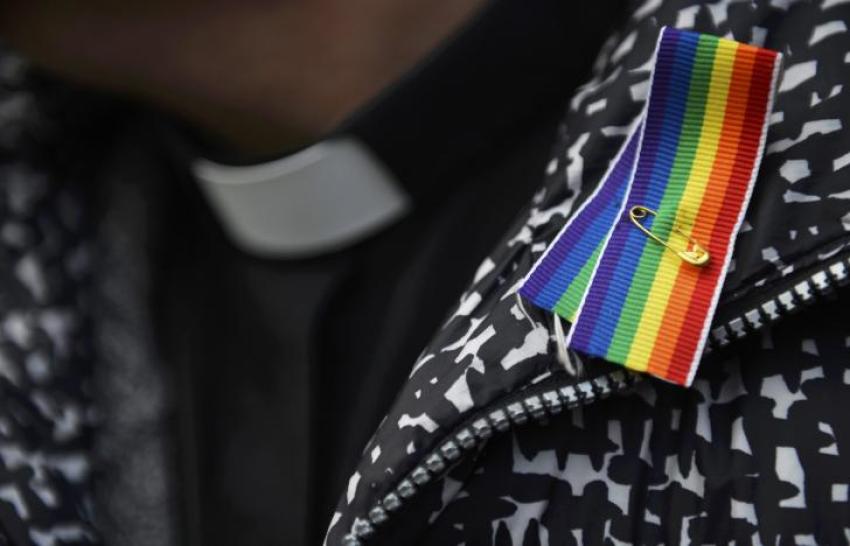Church Clarity Leaders Respond to Concerns About New Church LGBT-Affirmation Database

The leaders of Church Clarity, the new online database that grades churches based on their websites' transparency on actively enforced LGBT policies and views, have received an "overwhelming" demand and are encouraging criticism and feedback to prevent "inconsistent application."
The website, founded by a group of LGBT-affirming Christians, seeks to provide an outlet that highlights the policies of churches across the country in regards to things like officiating a same-sex marriage, allowing a transgender person to join a women's group and other LGBT-related church issues.
Since its launch, Church Clarity has taken social media by storm with Christians who decry ambiguity of pastors and churches voicing their approval of such a concept and some issuing their criticisms or initial concerns on the initiative.
Since Church Clarity is not looking to judge church policies and only exists to provide more transparency to church seekers about their local church's' positions on LGBT matters, Church Clarity co-founders have responded to concerns presented by prominent Christian thinkers that were laid out in The Christian Post's previous reporting on the new platform.
"We try to be public about our methodology so people can call us out on inconsistent application!" Church Clarity co-founder Sarah Ngu, a deacon at Forefront Brooklyn church and co-organizer of the church's Queer Communion, told this reporter in a tweet.
Religion reporter Jonathan Merritt pointed out in a piece for Religion News Service that although the database is looking to stamp out ambiguity on all sides of the issue, " the organization curiously does not list any liberal congregations that are classified as unclear."
The database grades churches based on these categories: "unclear non-affirming," "clear-affirming," "clear non-affirming" and "undisclosed." However, no churches are yet listed as "unclear affirming."
"I imagine they [unclear affirming churches] will be added soon as we review scores," Ngu explained in a tweet. "For many reasons affirming churches tend to be clearer than non affirming ones."
As of Monday, there are just under 40 churches listed on the database, many of which are evangelical megachurches.
Church Clarity co-founder George Mekhail, who works for the LGBT-affirming The Riverside Church in New York City, wrote in a tweet that the churches included upon the initial release of the website were just "some of the more visible churches that vary in their clarity & policy."
"Moving forward it's all based on crowdsourced demand," Mekhail continued.
Church Clarity has a submission form that allows people to submit information on their local churches' LGBT policies that are verified by Church Clarity before being posted on the site.
"The response to #churchclarity has been overwhelming," Mekhail added in another tweet. "We are taking steps to scale up & meet the demand. We will get more scores out soon!"
Wesley Hill, assistant professor of biblical studies at Trinity School for Ministry in Ambridge, Pennsylvania, expressed some of his concerns about Church Clarity in a series of tweets. Among his concerns, Hill questioned the "ideological purity on all sides of this."
Merritt also wrote in his peice that the fact that the Church Clarity leadership team and advisory council is comprised of mostly left-leaning Christians means that the website's "visitors will be excused" from believing that Church Clarity is "neutral."
"I get it," Mekhail wrote on Twitter. "But, actively enforced policies are knowable regardless of ideology. How churches answer real life questions they get regularly."
Hill also voiced concern with Church Clarity because he believes that the concept is implicitly suggesting that "non-affirming" churches can't be good homes for LGBT folks."
"As a cishet male, I can't fully understand the complexity of a being gay/celibate xtian," Mekhail wrote in another tweet. "I hear Wes."
Ngu also weighed in on Hill's concern.
"First, I respect Wes a ton," she wrote. "Second, that is more projection than implication — we may write a blog to clarify what CC is not vs is saying."
Ngu also took a crack at responding to another one of Hill's concerns — the concern that the database will lump in churches that have affirming policies but are restricted by diocesan or denominational guidelines from conducting same-sex weddings, such as some churches in the Episcopal Church or the Reformed Church in America.
"It depends on [the church] website," Ngu wrote. "@RevVickiFlippin's church is in that situation but is in open defiance of diocese, which is reflected on website."
"So her church is fully affirming and publicly so, knowing that their pastor could be stripped of her license of course," she added.
The Church Clarity FAQ page maintains that although Church Clarity has an affirming policy, that does not mean that "the goal of our organization is to convince others to conform with our policy."
"The nuance of our mission is that regardless of the policy, we believe disclosure is essential," the FAQ page reads. "That is why we are eager to enlist those who are passionate about clarity and who represent the full spectrum of theological positions. We also desire to be an organization where those who work for us, partner with us or are ambassadors at any level can freely and publicly voice their opinions at their individual discretion."
"We acknowledge that there is a potential tension between our policy-views and our organizational goal, but we also believe that remaining completely free of bias is impossible for any organization," the FAQ page continues. "We are comfortable with this tension and welcome feedback on how we can improve in this regard."



























